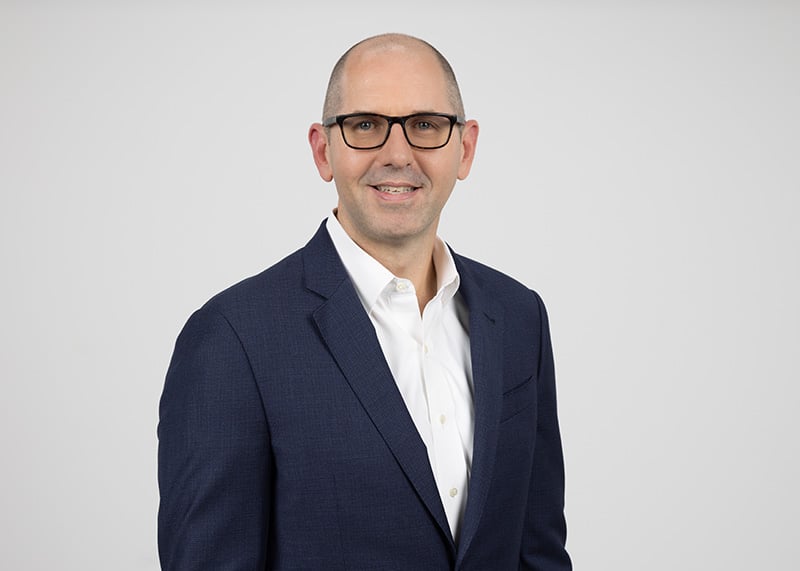The Road to Financial Wellness
Tips for managing your future.
Managing your money and assembling a portfolio isn’t easy, especially when your focus is on building a family and/or your career. We sat down with Bradley Lacore, senior vice president and director of wealth management at Cogent Private Wealth, for his tips on building a healthy financial future.
Orlando magazine: What is the first thing a person should do to create a retirement plan?
Bradley Lacore: As much as retirement planning focuses on the long term, it can be difficult for people to envision that far out, especially if they’re just getting started in their career or even in the middle of their career, or if they’ve had kids and there’s a lot going on. It’s probably more important to focus on short-term goals like a savings target, how much they’re looking to reduce debt. Those are a form of retirement because you’re socking money away and you’re paying down debt so that you’ll be able to save more in the future. Hitting those goals over the quarter or over the year is great retirement planning, even though it’s not necessarily keeping the end in mind when you’re doing it.
OM: How can a person maximize their retirement plan?
BL: Typically, depending on the plan you’re in, there are rules around how much you can put into it. In 2024, any individual can put up to $23,000 into their 401k or their 403b and if they’re 50 or older, they can do an additional $7,500, which gives them about $30,500 that they can put into a plan. For a lot of people, it’s difficult to even make it to that. At the bare minimum, if you’re working for an employer and that employer has a match, you should at least contribute enough to get the full match, because that’s free money. A common amount is three percent.
OM: How does inflation today affect investments?
BL: One way to think about inflation is that it tells you exactly what your portfolio needs to earn to just stay at your current purchasing power.
For instance, if inflation is 3.8 percent [as it was when this interview was conducted], you know that to grow your portfolio beyond your current expenses, you would need it to grow more than 3.8 percent. So, inflation tells you what you need to earn to keep up the current purchasing power, and then you obviously want to grow beyond that.
You don’t know whether stocks will go up down or sideways when inflation’s high. If you look over the long term, owning stocks has outpaced inflation. So, while I can’t tell you if it’ll happen this year or next year, over the long term you’ve been rewarded.
Above inflation for owning stocks, bonds are a little more of a negative story. Typically, higher inflation rates force interest rates up. And higher interest rates are bad for bonds in terms of their values. But how bad it is really depends on the length until that bond matures.
Very short-term bonds are not as impacted by rising interest rates as longer-term bonds. If you’re holding a 30-year bond and interest rates go up, it’s going to have a much bigger impact on its value, because it is going to take so long for you to get paid back.
There are some things you can do within bonds such as staying shorter term, and there’s inflation-protected securities that you can buy. But it’s important to know that every decision you make and investments, just like in life, can have trade-offs. You want to build a portfolio that is structured to do well over the long term because we really can’t predict what’s going to happen in the short term. Whether inflation goes up from here, down from here, people can guess. But there are some things you can do around the edges to help protect against inflation. I would also caution somebody from going wholesale into inflation protecting-type securities because those too have their trade-offs, especially if the economics change and now, suddenly, those types of investments aren’t poised to do as well.
I think the most important thing is to always keep that long-term view as you’re building a portfolio for future retirement.
OM: Are investments such as Bitcoin something people should be looking into?
BL: There are very bright people on both sides of that argument. I think, in general, people should be investing in things that they have an understanding of—it’s a good first step, because investments tend to go up and down. If you really don’t understand why you own something, you might get out at the wrong time, which is a pretty common issue that people have when stocks go down. You should only put into an investment what you can afford to be wrong about; you should never have so much exposure to it that if it goes to zero, that it really derails your long-term success.
OM: What are some tips to maintaining a healthy credit score?
BL: Make payments on time. It’s simple, but that will help to maintain your credit score. Limit the number of inquiries. There’s a typically a window of time that, for example, if you’re going to shop for a car, to have a couple different dealerships pull your credit within a short period of time. Those don’t hurt you, but if you spend two years looking for a purchase and every three months you’re having somebody pull your credit to see if you qualify, too many inquiries can hurt your credit score. Limit the amount of credit cards you have. Credit cards are unsecured debt and those can reflect negatively on your credit score. [Pay down] the credit cards with the highest interest rates first, then move on to those with lower rates.
Be aware of your oldest credit history. The loans you’ve taken out for the longest [amount of time] have a larger impact on your credit score. As time goes on, making sure that those older or accounts and older debts stay in good standing is really important.
I’ve seen credit scores turnaround quickly based on consistent payment and the paying off of debts.
OM: To you, what does a healthy investment strategy look like?
BL: The best portfolio for you is the one that you can stick with. You want to have a mix of stocks and potentially bonds. Your portfolio’s growth primarily is going to come from stocks that you own, so own a wide variety. Cast a wide net and own as many companies as you can, because it’s very hard to predict which ones are going to be successful. You should own enough stocks that you’re comfortable with and that you won’t get out of if the market goes down.
I read once that a loss hurts twice as much as a gain feels good. It’s easy to underestimate just how much a loss will hurt, and maybe force you to act irrationally. So, a mix of stocks and bonds is key.
Also, structure your short-term needs to be ultra-safe, which allows you to take a little more risk on those longer-term opportunities.




